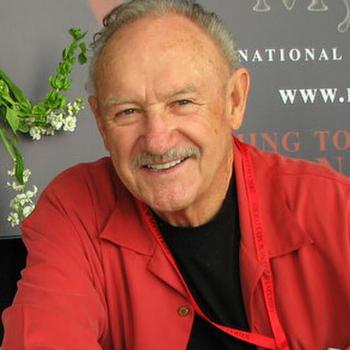For the first time in the 19 years of the Willow Creek Association's Global Leadership Summit, a speaker publicly cancelled. An online petition launched by a Washington-based Democratic strategist called upon Howard Schultz, the famed founder and CEO of Starbucks, to cancel his appearance at Willow Creek due to the church's alleged "long history of anti-gay persecution" as evidenced by their attempts to "cure people of their sexual orientation." The creator of the petition, as far as I know, has no personal history with the church.
Since 2008, I've had the opportunity to teach at Willow Creek a half dozen times. Additionally, as a resident of Boystown, the LGBT neighborhood of Chicago, I have become friends with a number of LGBT people who are either current or former members at one of the locations of the suburban Chicago mega-church. After attending the Summit and hearing Bill Hybels' statement explaining that Schultz would not appear (please watch), Richard Engle, a gay man who has been a member at Willow Creek for twenty years, told me:
In my view, [Hybels'] response reflects the teachings of Jesus Christ—that God is pro people, loves everyone, and everyone is welcome. We are not anti-gay and don't hate gay people. I felt that was a wonderful way to respond, and exactly how I would have responded. Willow has never tried to make me straight. I'm proud of my church and my pastor.
Ted Miller, Communications Director at Willow Creek, said that roughly 250 people had signed the petition at the time of Schultz' cancellation—compared to the estimated 165,000 that either attended or watched the Summit from a satellite location. Starbucks did not say that the petition had anything to do with the cancellation, but neither did they offer any other explanation. With Starbuck's silence, all we have to work with is Hybels' statement and the experience of those gays and lesbians connected to Willow Creek.
So I had a conversation with a gay African-American man in his thirties who has been a member of Willow since 2007; he noted that "[Willow] is a safe space for me to work with my questions. I feel that whatever becomes my expression of faith, Willow actually does want to walk with me in my journey and support me whichever way they can—even though they're not perfect or have all the details worked out."
With such a large church, however, not every situation is filled with such excitement and hope. A former lay leader at Willow Creek was asked to step down when the church found out he was gay. "My personal experience was one that was not anti-gay," he said, "but I wouldn't say it was pro-gay either. Willow welcomes people, but they welcome gay people to the back row. I was asked to step down from my position, even though I hadn't ever had sex. The same question—'How's your celibacy going when you're not married?'—was not asked of my heterosexual counterparts."
I truly wish Hybels would have publicly recognized the fact that there has been so much hurt, pain, and even death, caused by the broader Church's response to LGBTs. As Christians, it should be our responsibility to seek reconciliation with those we have outcast more than it should be to make Howard Schultz feel "Christian goodwill" (as Hybels suggested) by buying a cup of Starbucks coffee.
The initial advice I communicated to the Willow leadership, while their guest on the first day of the Global Leadership Summit, is that it's time to put intentional organizational actions behind their words. Moving forward, the internal challenge will not be the way in which they are pressured from the outside to change their theological belief system; it will be what they are willing, boldly and sustainably, to do about their statement at the Summit. Willow Creek must learn what it means to actively listen to, learn from, engage with, and be informed by the LGBT community over the long haul.
It was not an insignificant step for a world-renowned evangelical leader to state publicly that all people, regardless of sexual orientation, are welcome at his church. I hope he turns to one of America's most renowned leaders for the courage to do what comes next. As Teddy Roosevelt once said:
It is not the critic who counts; not the one who points out how the strong person stumbles, or where the doer of deeds could have done them better. The credit belongs to the one who is actually in the arena, whose face is marred by dust and sweat and blood; who strives valiantly; who errs, who comes short again and again, because there is no effort without error and shortcoming; but who does actually strive to do the deeds; who knows great enthusiasm, the great devotions; and who spends themselves in a worthy cause...
There will be critics and there will be naysayers, but in striving to translate welcoming words into lasting organizational change, in correcting the harmful ways in which the Church has treated LGBTs, Hybels and other Christian leaders will devote themselves to a worthy cause indeed.
8/24/2011 4:00:00 AM




